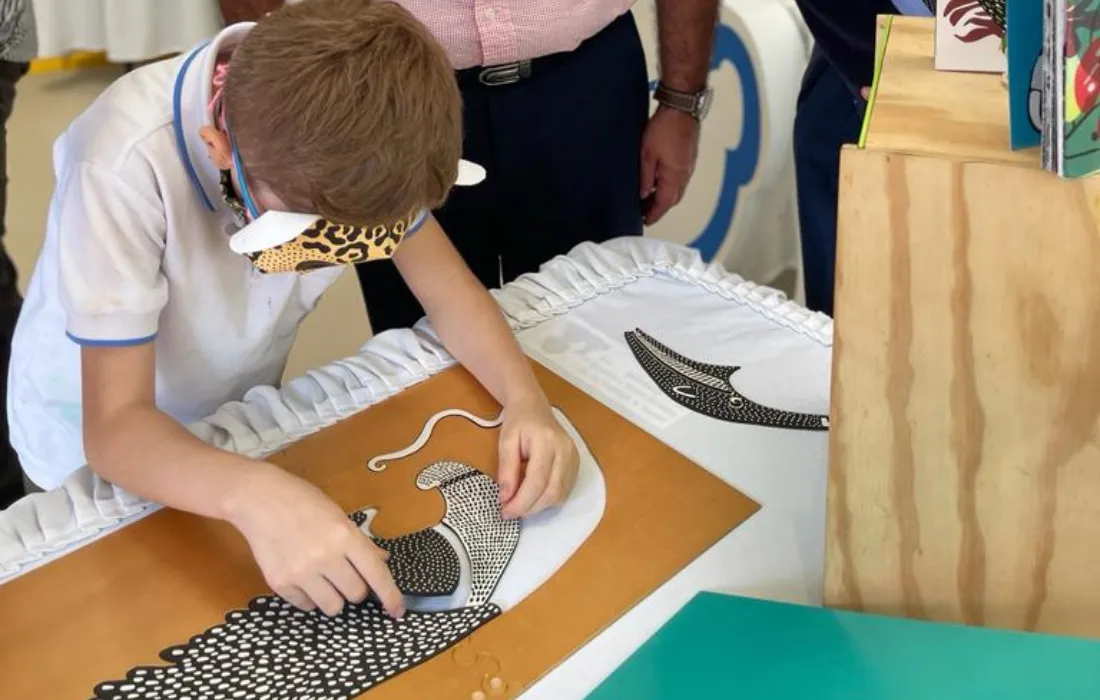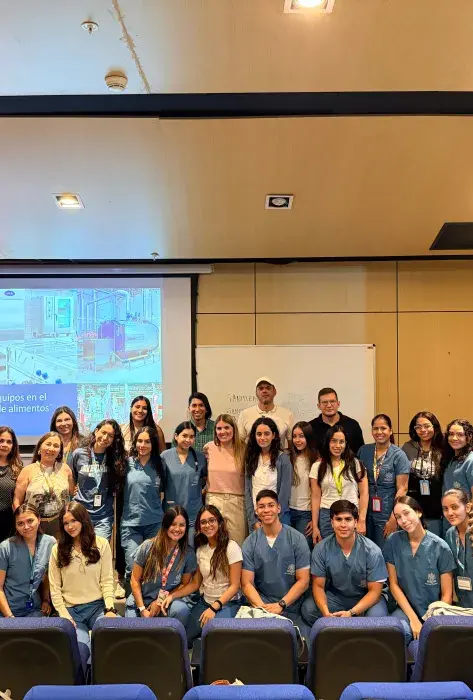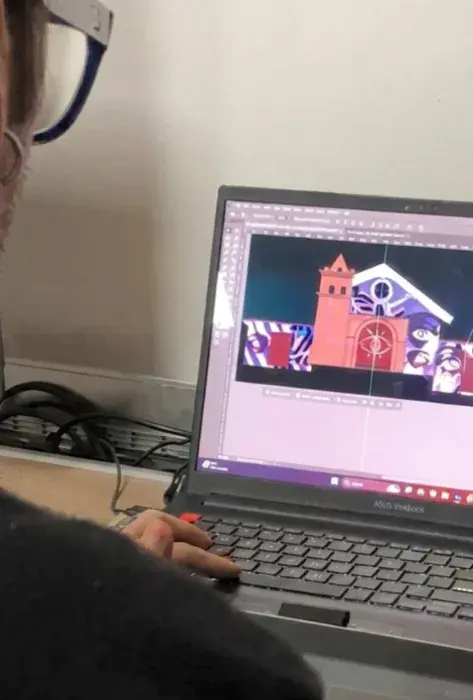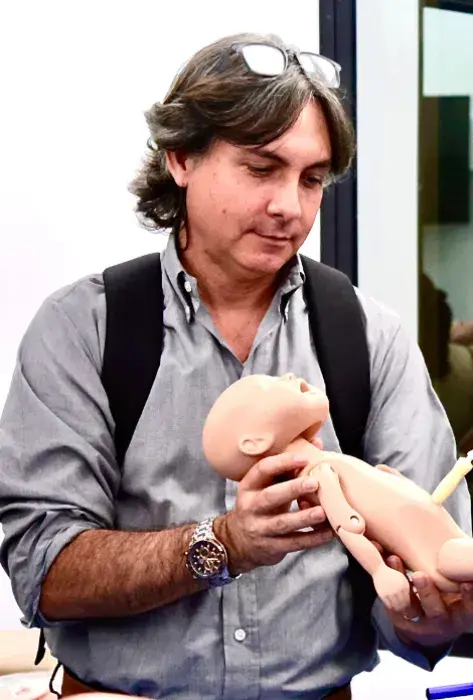Sensory Diversity: A Commitment to Inclusive Education and Environmental Preservation

Photo: Institute for Blind and Deaf Children

Creado por: Katherine Martinez Rivera
Communicating biodiversity through sensory experiences was the focus of the project Narrative, Virtual Reality, and Sensory Impairments, a collaborative effort between Pontificia Universidad Javeriana Cali, the University of Sherbrooke, and the Institute for Blind and Deaf Children of Valle del Cauca (INCS).
With interactive narratives featuring endangered Colombian species, the project aimed to support the learning and rehabilitation of children at the Institute by enhancing their linguistic, cognitive, and motor skills. This was achieved through stories about animals at risk of extinction, utilizing extended reality (XR) technologies, including virtual and augmented reality.
"Talking about biodiversity at COP16 is also a reminder that we, as human beings, are diverse. What we've done is approach inclusion from the perspective of accessibility, giving children with low vision or hearing impairments the opportunity to learn about this topic through technology. Additionally, this project promotes their neural and language development, benefiting all children," says Andrés Navarro, professor at Javeriana Cali and a member of the research team.
The stories incorporate contrasting colors, sounds, and tactile sensations, creating inclusive and accessible multisensory experiences that offer hands-on learning about the characteristics of animals and their habitats.
Moreover, the children from the Institute participated in theatrical storytelling and drew the animals, with their creations integrated into a metaverse that highlights their creativity. This includes their paintings, a children's choir, videos documenting the development process, and the storytelling itself.
"The significance of this project for the Institute lies in the opportunity to experiment with virtual and augmented reality technologies to create meaningful multisensory learning experiences about the physical characteristics, habitats, and diets of four endemic Colombian species: the spectacled bear, the condor, the jaguar, and the marmoset monkey.
Additionally, this allowed us to assess the long-term retention of the knowledge acquired by the children, their motivation to learn through technological mediation, and to explore the potential for developing not only tools to support habilitation and rehabilitation but also alternatives for detecting psychomotor issues in children," said Andrés Castillo, Research and Innovation Coordinator at INCS.
What started as a research project has now become a permanent lab at the Institute for Blind and Deaf Children, where biodiversity narratives are explored through emerging technologies to promote both child development and accessibility.
Learn more about this project in the 'Javeriana Biodiversa' route. Check out the full agenda here.
Translated by the Centro de Idiomas, Pontificia Universidad Javeriana Cali.
Noticias
Nuestros estudiantes y profesores protagonizan hechos que merecen ser contados. ¡Conoce sus historias!

La Pontificia Universidad Javeriana Cali (PUJC) y la Universidad Católica de Córdoba (UCC, Argentina) desarrollaron un Intercambio Docente Internacional que tuvo como...

La Pontificia Universidad Javeriana Cali fue sede de la tercera versión del Taller Intensivo de Videomapping, una técnica que proyecta animación y video sobre superficies...

El estudiante Juan Vicente Olave de la Pontificia Universidad Javeriana Cali alcanzó el octavo lugar a nivel mundial en una reconocida competencia internacional de Excel...

Con el propósito de fortalecer el diálogo entre la academia y las instituciones del sector, la Pontificia Universidad Javeriana Cali realizó el I Encuentro de...


